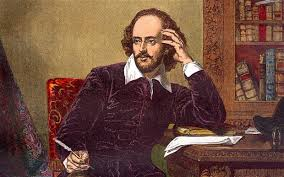The Unpleasantness at the Bellona Club, Have His Carcase - by Dorothy Sayers
A Dickens novel (Little Dorrit or Our Mutual Friend)
Lord of the Rings (reread)
Kristin Lavransdatter
Apologia Pro Vita Sua (reread)
Bio/Study of Newman
The Poet and the Lunatics by G. K, Chesterton
Some Mystery Novels
Some Encyclicals
60-70 work, with about 15,000 pages (those number goals are not rigid).
So how have I done? Goals met:
The Unpleasantness at the Bellona Club, Have His Carcase by Dorothy Sayers
Kristin Lavransdatter by Sigrid Undset
Apologia Pro Vita Sua by St. John Henry Newman (reread)
Bio/Study of Newman - John Henry Newman: Snapdragon in the Wall by Joyce Sugg
The Poet and the Lunatics by G. K. Chesterton
Some Mystery Novels - Six so far (including the two by Sayers)
The Unpleasantness at the Bellona Club by Dorothy Sayers
Have His Carcase by Dorothy Sayers
Murder in the Lincoln White House by C. M. Gleason
Murder at the Capitol by C. M. Gleason
The Vanishing Woman by Fiorella De Maria
See No Evil by Fiorella De Maria
Some Encyclicals - Two so far
Peace on Earth (Pacem In Terris) by Pope St. John XXIII
Mater et Magistra by Pope St. John XXIII
All told, 34 works, with a Page Count of 7,596
Tolkien’s Faith: A Spiritual Biography by Holly Ordway
John Henry Newman: Snapdragon in the Wall by Joyce Sugg
Apologia Pro Vita Sua by St. John Henry Cardinal Newman
The Epistle of Barnabas
The Epistle to Diognetus
The Didache
Letter to the Corinthians by Clement of Rome
Simplicity by John Michael Talbot with Dan O’Neill
Peace on Earth (Pacem In Terris) by Pope St. John XXIII
Mater et Magistra by Pope St. John XXIII
St. Thomas More by E. E. Reynolds
The Poet and the Lunatics by G. K. Chesterton
The Surprise by G. K. Chesterton
The Judgement of Dr. Johnson by G. K. Chesterton
Descent Into Hell by Charles Williams
Kristin Lavransdatter by Sigrid Undset
The Wreath
The Wife
The Cross
The Remains of the Day by Kazuo Ishiguro
The Heart of the Matter by Graham Greene
The Unpleasantness at the Bellona Club by Dorothy Sayers
Have His Carcase by Dorothy Sayers
Murder in the Lincoln White House by C. M. Gleason
Murder at the Capitol by C. M. Gleason
The Vanishing Woman by Fiorella De Maria
See No Evil by Fiorella De Maria
Twenty Thousand Leagues Under The Sea by Jules Verne
John the Balladeer by Manly Wade Wellman
The First Men in the Moon by H. G. Wells
The Food of the Gods by H. G. Wells
Henry Wadsworth Longfellow Selected Poems
Christmas Presence: Twelve Gifts That Were More Than They Seemed
edited by Gregory F. Augustine Pierce
Making the Best of What’s Left by Judith Viorst
Onward!
.jpg)









